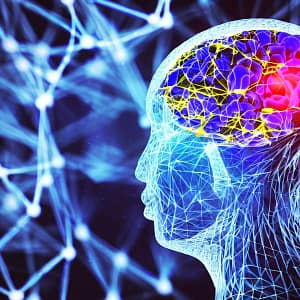Introduction
In the swiftly evolving realm of technological progress, Artificial Intelligence (AI) stands out as a revolutionary power that is remolding sectors and profoundly molding the path of our upcoming days. By streamlining repetitive chores to facilitating intricate choices, AI’s game-changing capacity is being utilized across diverse domains. Within this piece, we explore how AI is overturning industries and examine the extraordinary consequences it harbors for our globe.
Understanding Artificial Intelligence
Artificial Intelligence pertains to the creation of computerized systems capable of executing actions traditionally within the realm of human intelligence. These activities encompass imbibing knowledge from encounters, comprehending spoken language, identifying patterns, and rendering judgments. The mechanisms behind AI, such as machine learning, neural networks, and deep learning, facilitate these achievements.
As AI mechanisms handle extensive datasets and adjust strategies based on results, they progressively enhance their effectiveness, establishing themselves as indispensable instruments spanning a wide array of sectors.
AI in Healthcare
The healthcare industry has embraced AI with open arms, leveraging its capabilities to enhance patient care, diagnostics, and drug discovery. AI algorithms can analyze medical images with remarkable accuracy, aiding in the early detection of diseases like cancer.
Moreover, AI-driven predictive analytics assist in identifying potential outbreaks and epidemics, enabling swift and targeted responses. By automating administrative tasks, AI allows healthcare professionals to allocate more time to patient interaction, thus elevating the overall quality of care.
Transforming Finance
The financial sector has witnessed a seismic shift due to AI-powered solutions. Fraud detection has become more robust, as AI algorithms identify unusual patterns in transactions. Stock market predictions are now driven by intricate algorithms that analyze market trends and historical data, aiding investors in making informed decisions. Additionally, AI-driven chatbots provide customer support round the clock, enhancing user experiences in online banking and financial services.
AI and Manufacturing
Manufacturing processes have undergone a revolution with the integration of AI. Automation, a key aspect of AI, has streamlined production lines, reducing errors and increasing efficiency. Predictive maintenance, enabled by AI, has minimized downtime in factories by anticipating equipment failures before they occur. The concept of the smart factory, where machines communicate and optimize workflows autonomously, has become a reality, ushering in a new era of industrial productivity.

Transportation Transformed
The transportation industry is on the brink of transformation, thanks to AI-driven innovations. Self-driving cars, guided by AI algorithms and sensors, promise safer and more efficient roadways. Traffic patterns can be analyzed and optimized in real-time, reducing congestion and commute times. AI-powered logistics streamline the movement of goods, from warehouse management to last-mile delivery, revolutionizing the entire supply chain.
AI in Education
In the realm of education, AI is personalizing learning experiences for students. Adaptive learning platforms use AI to assess a student’s progress and tailor lessons to their individual needs. This approach not only enhances comprehension but also keeps students engaged. Language processing AI tools aid in improving writing and language skills, providing instant feedback and guidance. As AI continues to evolve, it has the potential to bridge educational gaps and make learning more accessible globally.
The Ethical and Societal Implications
While AI’s transformative power is undeniable, it also raises ethical and societal concerns. As AI systems make decisions based on data, biases present in the data can perpetuate inequalities. Striking a balance between innovation and ethical considerations is imperative. Additionally, concerns about job displacement due to automation loom large. However, history has shown that technological advancements create new avenues for employment, and AI is likely to be no different.
Conclusion
Artificial Intelligence stands as a beacon of technological progress, revolutionizing industries and shaping our future in profound ways. From healthcare to finance, manufacturing to transportation, its impact is felt far and wide. While challenges exist, the potential for AI to drive efficiency, enhance human capabilities, and unlock new possibilities is truly remarkable. As we stand on the threshold of this AI-powered future, embracing its potential with vigilance and responsible innovation will be key to harnessing its benefits for all of humanity.



